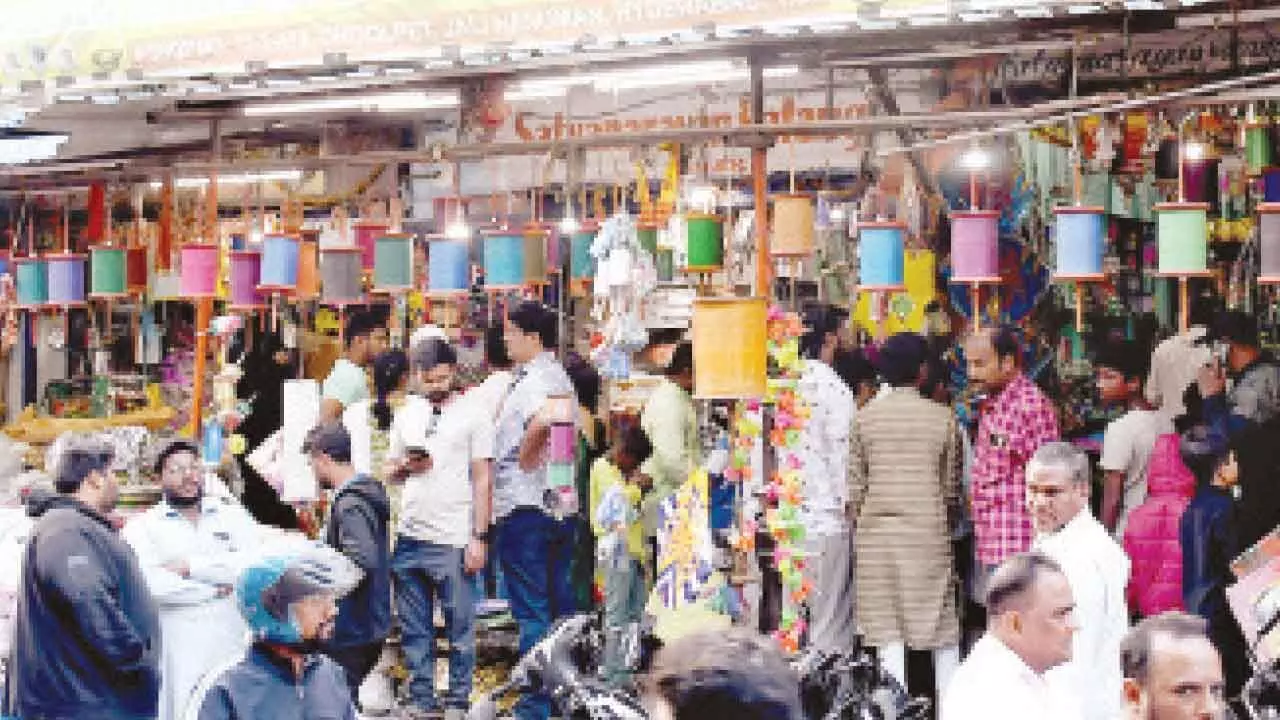Hyderabad: City kite sellers cock a snook at cops, peddle nylon manja freely

Police seize 6,261 bobbins and arrest 61 individuals
Hyderabad: As Sankranti approaches, the festival of kites is marred by the rampant illegal sale of Chinese manja, or tangus manja, which is accessible in retail shops across the city and throughout the kite markets in Charminar, Begum Bazaar, Hussainialam, Dhoolpet, and Mangalhat areas. The soaring demand for this glass-coated thread coincides with the peak kite-flying season, raising serious concerns about safety.
Despite the ban, there has not been any respite in the sale of illegal Chinese manja among retailers and kite flyers in the city. The dangerous thread remains readily accessible in the shops, despite increased police efforts to crack down on its distribution and make arrests. Tragically, there have been numerous incidents in the past where both humans and birds have suffered severe injuries due to the use of this hazardous manja.
The practice of kite flying during Sankranti has a rich history spanning for more than four hundred years.
However, the use of the prohibited Chinese manja has led to serious injuries and fatalities among both birds and humans. This type of manja, crafted from nylon or synthetic materials, is coated with glass and metal, making it dangerously sharp.
To curb the menace, Hyderabad police so far arrested 61 persons and seized a total of 6,261 bobbins of manja with Rs 37 lakh.
Traders and shopkeepers assert that tangus manja is significantly more affordable and long-lasting than other types of thread, particularly cotton. Despite its ban, it remains the preferred choice among customers. A shopkeeper in Gulzar Houz near Charminar explained, “The rise in sales of Chinese manja directly impacts vendors like us who do not offer it, as customers prefer more durable and cost-effective tangus manja over the standard options we provide,” said Vishal Das.
Some traders argue that despite the ban on Chinese manja in 2016, its production and sale continue during the festival. They emphasise the need for authorities to put an end to the manufacturing of this prohibited thread. “If customers can not find it in our store, they simply go elsewhere. This means we miss out on kite sales and other festival-related items,” lamented the kite sellers in Hussainialam.
The banned Chinese manja is priced between Rs 300 and Rs 600 for a 4,000-meter bobbin. Many people opt for Chinese manja due to its superior durability during kite battles, where entanglements are common. Whereas the cotton manja tends to be pricier, as it is crafted from pure cotton thread and requires significant skills and craftsmanship to produce.
Additionally, the demand for handmade cotton manja has been gradually decreasing. Traders say few of the customers who are traditional kite flyers use the cotton thread.
There are several types of cotton thread for which the old-style flyers are well-known, and they fly kites with those threads, and few customers purchase the cotton thread for their kids to avoid injuries.














